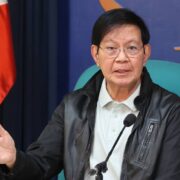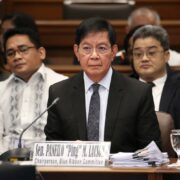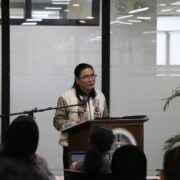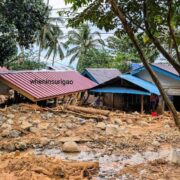Redirecting government’s housing program

The revamp by President Marcos Jr. of his Cabinet is an opportunity to redirect the current Pambansang Pabahay Para sa Pilipino Housing (4PH) program toward a more realistic, inclusive, and doable path.
The 4PH program, initiated in 2022, aimed at reducing the housing backlog by 2028 through the construction of 6.5 million housing backlog, 3.75 million of which are meant for informal settlers. This is being implemented by the Department of Human Settlements and Urban Development (DHSUD) in partnership with local government units who provide the land, private developers who build the structures, and Pag-Ibig providing low interest loans.
By mid-October 2023, however, only a handful of private developers were participating in the program. Hence, DHSUD and the National Economic and Development Authority raised the ceilings for the needed socialized housing units hoping to entice more private sector participation in the program. However, over 50 percent of our population cannot afford even the lowest price ceiling. In fact, the new price ceilings make it even more unaffordable to the majority of Filipinos.
In August 2024, President Marcos announced that the government was cutting down the 4PH housing target from 6 million to 3 million until 2028 supposedly due to slow private financing. While this may be true, the 4PH program faced other obstacles, such as the lack of cheap land on which to build the housing structures, construction issues associated with building medium- and high-rise structures, and the increasingly obvious unaffordability of the housing units. Besides, at that time, no housing projects had been initiated for informal settlers despite its original promise.
The problem that the 4PH program faces is not housing; it is low income. Hence, it cannot be solved by the traditional commercial real estate approach which treats a housing unit as a commodity of trade. Until such time that people’s incomes make it possible to afford what the traditional real estate market provides, or government adopts a more creative and innovative approach, the housing problem will only get worse.
There are existing good examples of decent and affordable housing settlements initiated by people’s organizations and nongovernmental organizations, some of which with the support of the National Housing Authority or the Social Housing Finance Corp. In the late 1970s and early 1980s, there were also the government-initiated Bagong Lipunan Sites and Services housing, slum upgrading, and sites-and-services Programs that offered affordable housing using innovative strategies such as the incremental construction and usufruct (e.g., long-term lease) lease approaches. The latter, which is similar to the Community Land Trust approach that is widely recognized in developed countries as an effective strategy to provide for permanently affordable housing, has in more recent years adopted by Valenzuela City in its highly successful Disiplina Village housing settlements.
The “human settlements” approach includes the upgrading of existing urban poor communities. There are a large number of such communities that were previously proclaimed in favor of their occupants during the term of former president Corazon Aquino but where housing and environmental quality remains very poor. Conditions in these settlements include inadequate basic services, poor sanitary conditions, health deficiencies, high vulnerability to disasters, and lack of income-generating activities—all characteristics of inadequate housing.
Unfortunately, these settlements are not included in the 4PH program. Neither does the 4PH program support people’s plans for their own home construction in their communities with guidance from socially sensitive urban planners, architects, and engineers. Moreover, the 4PH program does not recognize the legitimacy of the huge numbers of men, women, youth, and the elderly in the informal economy who keep our towns and cities running but whose contributions are unregistered and are all too often even considered illegal.
In short, the 4PH program is unrealistic and unworkable for most of the urban poor. The government needs to rethink its approach and instead lend more support to what has been proven to work in the past, including people-generated settlement programs.
——————
Nathaniel von Einsiedel is a fellow emeritus of the Philippine Institute of Environmental Planners (PIEP) and the former commissioner for planning of Metro Manila.
The author (nveinsiedel@gmail.com) is a Fellow and Past President of the Philippine Institute of Environmental Planners and Principal Urban Planner of CONCEP Inc.

















Gaza evacuation: For humanitarian reasons only